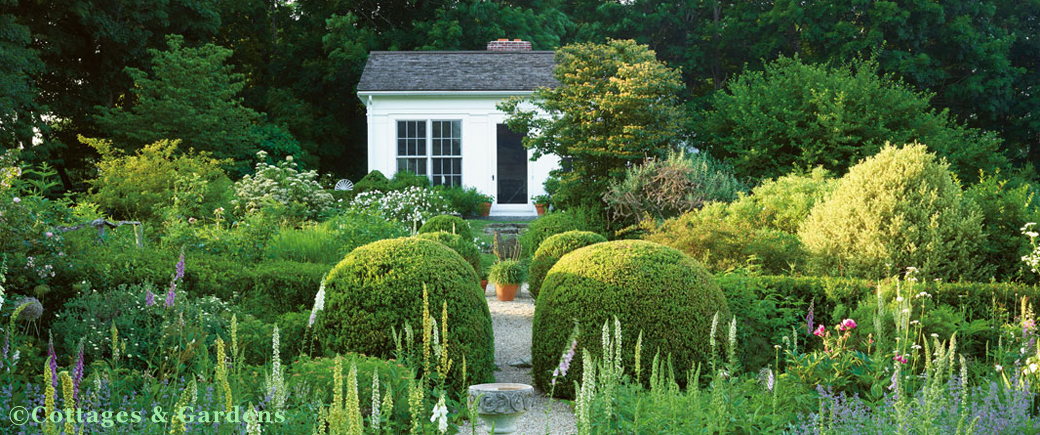Into the Garden
Page Dickey Reflects on her New Garden and COVID-19 Challenges
There are gardeners and garden writers. Then there is Page Dickey who reigns supreme in both categories. Since she planted her first garden at the age 12, she has been a passionate lover of the process of watching nature work its magic, adding a soupcon of help. She contributes to that magic by creating the canvas: planning for the garden, nurturing it and writing about it.
Over the years she has written on garden design for House & Garden, House Beautiful and Elle Décor. She lectures regularly on garden design and teaches classes at the New York Botanical Garden and the Horticultural Society of New York. Additionally, she has written numerous books, including Breaking Ground: Portraits of 10 Garden Designs; Gardens in the Spirit of Place; Inside Out: Relating Garden to House, and Duck Hill Journal: A Year in a Country Garden.
For more than 30 years, Dickey and her husband lived at Duck Hill Farm in North Salem NY, with three acres of extensive cultivated gardens—a sight to behold, indeed. About five years ago the Dickeys moved to Falls Village.
“We were getting older,” explains Dickey, “and the gardens had developed a certain notoriety. People came in groups to look at them and there was an impetus on our part to keep them looking perfect all the time. We did all the work ourselves which is what I wanted to keep doing. Northwest Connecticut was always in the back of my mind as a place I could live. I love that countryside and we have a number of friends there so it wasn’t as if we were moving to an unknown place.”
The move to Church House, as it is known, offered new opportunities and challenges, all of which Dickey has taken in stride and is enjoying immensely.
“We have much more land, 17 acres,” she said. “And the garden around the house is smaller.”
The house, built in 1793, was used as a place of worship. It is surrounded by fields, open space that allows the grass to grow and the fields to flourish, before dipping into low edge woods. On the other side, there are rocky limestone woods.
“I have never owned uncultivated land before,” she continued. “A lot of my energy is spent clearing and making trails. We have a smaller number of gardens to take care of but we still have quite a few around the house. A lot of my time is spent in the woods and just enjoying that whole aspect of natural gardening.”
With the change in climate from one state to the other, Dickey has the opportunity to rethink what she can grow.
“Where we live now is one zone colder,” she explains. “The good news is I can finally grow sweet peas but some things that survived at Duck Hill won’t survive here. We have very sweet soil, except in the deep woods. It’s been a learning process to see what works and what doesn’t. In the flower garden, for instance, I knew that things like lilacs, peonies and primrose would love it here.”
Everyone has been adjusting to new experiences during the Covid-19 pandemic but Dickey said she has observed changes in the gardening world as well.
“We all are amazed at the increased enthusiasm for gardening. Many people are now settled in the countryside. There has been a shift to interest in the gardening world. This is the year to have a vegetable garden, to plant flowers, to take walks in the woods. Because we are not traveling and shopping and doing the things we usually do, it’s been this wonderful quiet time to garden. Many of my friends just savor this spring, working in the garden. It’s a way for people who are not necessarily creative to express themselves. I hope some of this enthusiasm lasts beyond the pandemic.”
Dickey believes that no one should be afraid of gardening.
“It’s not too late to start. My feeling and thinking, don’t be intimated. Just go out and dig yourself a bed. Think about your windows and your doors and try to connect the garden to them. To start a flower or vegetable garden, find a sunny bed not too far from the house. Drop some seeds in and see how it goes. It doesn’t have to be beautiful except in your eyes. The best way to learn about gardening is to do it.”
Dickey is a prime example of how a little garden leads to bigger and better things. She studied art in school but started reading voraciously about gardens in her twenties and has never stopped. After penning many books on the subject, both informative and entertaining, she has now written her most intimate one: Uprooted: A Gardener Reflects on Beginning Again which will be published this September by Timber Press. While it is about gardening, it is not a coffee table book.
“It’s an extremely personal book, the most personal I’ve ever written. My readers have been asking for a book explaining the move and their curiosity about starting again. What is it like to leave a garden you have had for 34 years, and loved passionately and to move on to a completely different place and environment? It’s never a clean slate. A lot of the book compares and contrasts the two gardens.
“It also seemed right for the times we are experiencing,” she continued. “So many people’s lives have changed during these past months. In retrospect, I believe that some change may be for the better. Certainly, in my case, it has been.”
Dickey has always done personal appearances and given lectures for each of her books. It remains to be seen what the fall will bring.
“I am sure there will be events on Zoom and online postings about the book,” says Dickey. “But people are still reading, maybe even more so, and that’s a good sign.
And thanks to her, more people are gardening, and that’s another good sign.


